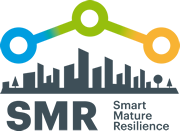The Metropolitan Area of Rome has been busy! It has published a pricing list for sustainable construction materials, based on analysis of availability, and introduced a new GPP monitoring system, the first of its kind in Italy.
Price list for green public works
In Italy public works are estimated on the basis of regional price lists. The Metropolitan City of Rome, in response to the challenges of lack of information on local market readiness and costs when introducing environmental criteria into public works tenders, carried out a detailed analysis on the availability of low environmental impact construction materials at national and regional level.
The Metropolitan City approved a new price list based on the results of this analysis to be adopted as reference for public works. The price list was published online, on the institutional web site, and disseminated trough workshops both at internal and local level.
For information, please visit the Metropolitan Area of Rome website.
A new GPP monitoring system
The GPP Action Plan of the Province of Rome was approved in 2009. After the first period of implementation, the Action Plan was updated in 2014 and extended to new product categories. GPP progress and results were monitored every two years (2009/2010, 2011/2012, 2013/2014). In 2016, the Metropolitan City of Rome has introduced a new GPP monitoring system that will allow for a punctual assessment on the achievement of GPP objectives and for the collection of basic info for monitoring CO2 savings also in the future, after the project end.
The Metropolitan City of Rome is the first public authority in Italy to introduce this innovative monitoring system which is linked to the public procurement electronic information system. It will allow to elaborate and publish data according to different criteria such as date, product categories, purchasing departments and volume of the contracts.






